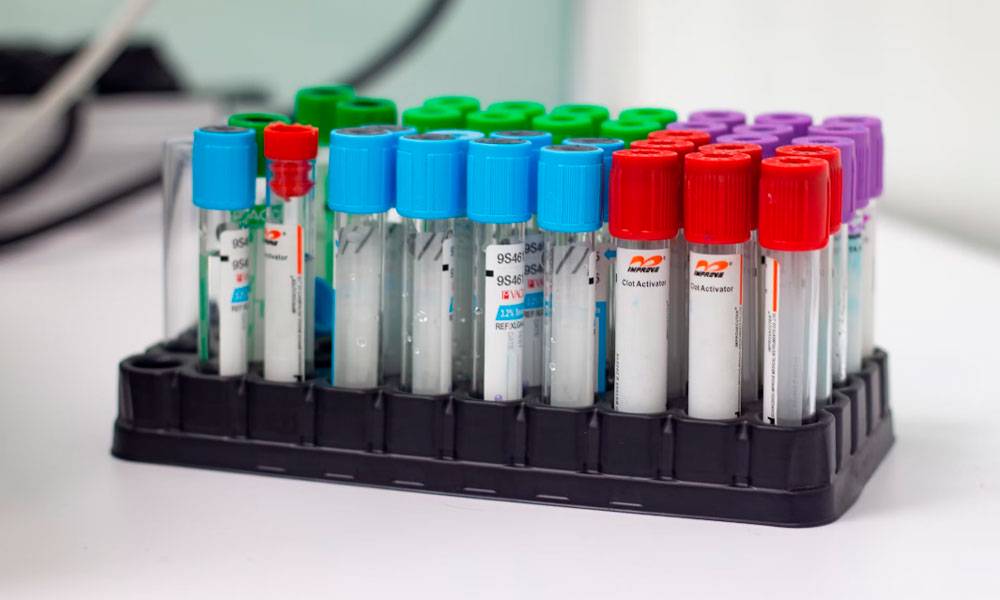You might have noticed something called ApoB (Apolipoprotein B) on the results sheet if you recently had an advanced blood test. The ApoB test counts the number of potentially dangerous lipoprotein particles in your blood, as opposed to traditional cholesterol tests that concentrate on total cholesterol or LDL-C. It can provide valuable information about the health of your heart.
Because ApoB is frequently a more accurate predictor of cardiovascular risk than LDL cholesterol alone, it is becoming more and more popular among cardiologists and experts in preventative health. However, what does a high or low ApoB actually mean? What are you supposed to do about it?
This post explains what ApoB is, why it matters, and how to interpret your results so you can act when it matters most.
What Is ApoB?
Lipoprotein particles that transport cholesterol through the bloodstream have a protein called apolipoprotein B (ApoB) on their surface. These particles, which can all lead to plaque accumulation in your arteries, include low-density lipoprotein (LDL), very low-density lipoprotein (VLDL), and intermediate-density lipoprotein (IDL).
There is exactly one ApoB molecule in each of these particles. The amount of atherogenic particles in your blood, which can penetrate artery walls and cause heart disease, can therefore be directly determined by measuring ApoB.
Why ApoB Matters More Than Just LDL-C
Although LDL-C indicates the amount of cholesterol carried by LDL particles, it does not indicate the number of particles involved. Even if your LDL-C level is normal, you may still have a lot of small, dense LDL particles, which increases ApoB and your risk of cardiovascular disease.
ApoB, on the other hand, indicates the actual quantity of particles, which is a more pertinent indicator for determining the level of stress your arteries are experiencing.
Research indicates that in many individuals, particularly those with insulin resistance, diabetes, or metabolic syndrome, ApoB is more strongly associated with cardiovascular events than LDL-C.
What Does a High ApoB Mean?
A high ApoB result indicates that your blood contains a lot of atherogenic lipoprotein particles, which increases your risk of artery-clogging plaque. This can result in:
- Heart disease
- Heart attack
- A stroke
- Peripheral artery disease
ApoB levels are typically regarded as high if they are:
- Over 90 mg/dL in low-risk individuals
- Over 80 mg/dL in people with cardiovascular risk factors
- Over 65 mg/dL in those with established heart disease or diabetes
Your doctor might suggest medication, lifestyle modifications, or additional testing if your ApoB is elevated. A high ApoB may indicate the need for more intensive treatment, even if your LDL-C seems normal.
What Causes High ApoB?
An elevated ApoB level can be caused by a number of factors:
- Diets heavy in refined carbohydrates or saturated fats
- Type 2 diabetes or insulin resistance
- Metabolic syndrome or obesity
- Factors related to genetics, like familial hypercholesterolaemia
- Hormonal imbalances or chronic inflammation
- Inadequate clearance of lipoproteins from the blood
A greater metabolic picture, which may include high blood pressure, low HDL, elevated triglycerides, or increased belly fat, is frequently accompanied by elevated ApoB. It’s an indication that your arteries are gradually becoming more vulnerable to harm.
What Does a Low ApoB Mean?
Generally speaking, a low ApoB result indicates a lower quantity of atherogenic particles and a lower risk of cardiovascular disease. It indicates that fewer of the particles known to cause plaque buildup are present and that your cholesterol transport system is functioning effectively.
Optimal ApoB levels are usually:
- Under 90 mg/dL for low-risk individuals
- Under 80 mg/dL for those at moderate risk
- Under 65 mg/dL for people with existing heart disease or diabetes
A low ApoB suggests that your lipid-lowering medication (statins, PCSK9 inhibitors, etc.) is successfully lowering the quantity of cholesterol-carrying particles rather than just the cholesterol within them.
However, unless there are other health conditions at work, like malnutrition or genetic lipid disorders, very low ApoB levels are uncommon and typically not a cause for concern.
What Should You Do Next?
The next step is to contextualise your ApoB result with the rest of your health picture, regardless of whether it is high, borderline, or low.
Here are some things to think about:
- Consult your physician: Talk about your findings in relation to other tests such as CRP, triglycerides, insulin, HDL, and LDL-C.
- Consider lifestyle adjustments: ApoB can be lowered by diet, exercise, weight control, and sleep.
- Assess need for medication: To lower ApoB and lower your long-term risk, your doctor may suggest statins, ezetimibe, or other therapies.
- Re-test in 3–6 months: Especially if you’re managing a chronic condition or making changes.
An ApoB test can help you improve your knowledge of cardiovascular health if you have never had one before, particularly if there is a history of heart disease in your family.
Final Thoughts
By measuring what really counts—the quantity of particles that can lead to plaque accumulation and artery damage—the ApoB test provides a more thorough examination of your heart health. ApoB concentrates on impact rather than quantity, in contrast to conventional cholesterol panels.
Even if your cholesterol appears to be normal, a high ApoB indicates that your arteries are more vulnerable. Conversely, one of the best signs that you’re headed in the right direction is a low ApoB.
ApoB is one of the most useful blood tests available right now if you’re prepared to manage your cardiovascular risk with more accurate instruments.
References
- SelfDecode – Apolipoprotein B (ApoB): Meaning, High, Low, Testing
https://labs.selfdecode.com/blog/apolipoprotein-b/ - Journal of the American College of Cardiology – ApoB vs LDL-C for Cardiovascular Risk
https://www.jacc.org/doi/full/10.1016/j.jacc.2018.02.074
Better Health Channel – Preventing Heart Disease
https://www.betterhealth.vic.gov.au/health/conditionsandtreatments/heart-disease-prevention

